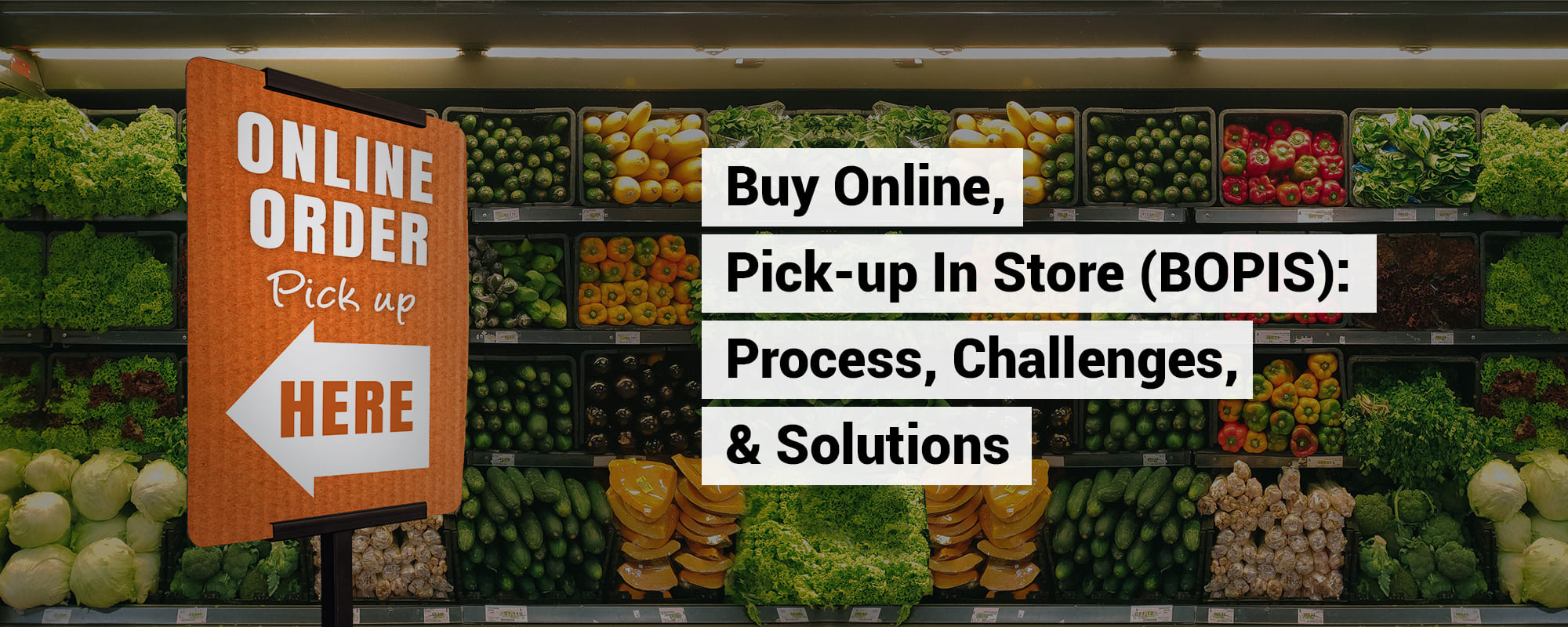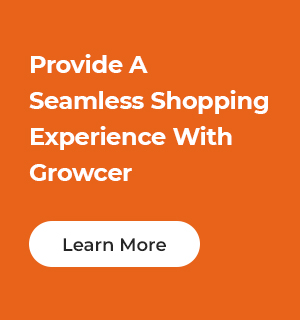Table of Content
When a pandemic hits, survival gets difficult. This is exactly what’s happening around the globe. As businesses are shut, people are forced to stay at home amid COVID-19 spread. While grocery retailers and businesses are struggling to stay put, their only hope for survival is to launch an online grocery store. With a record peak in online grocery shopping during the pandemic, it is becoming a popular choice for entrepreneurs and businesses to invest.
While nations enforce lockdowns, consumers are forced to stay indoors and purchase essential products online. This habit is likely to sustain as social distancing may become the new norm post corona time. In the future, when buyers are reluctant to visit a grocery store to shop for essentials, retailers must offer omnichannel fulfillment basics like buy online, pick up in-store (BOPIS) service. By implementing initiatives like curbside pick-up, virtual queueing, or allocated time-slot collection, retailers can limit the time spent by customers in-store, ensuring social distancing.
Also termed as click and collect, BOPIS is quickly emerging as the consumers new favorite and here’s why:
- Helps avoids delivery or shipping cost
- Consumers are able to check the quality of the product before taking home
- Instant return/replace of items, if required and more
Example: Retail giants like Myer are shifting to click and collect shopping even as lockdown restrictions ease in Australia. The retailer has registered a record 250% increase in digital sales and over 800% increase in online traffic since lockdown. As brands like Myer offer an omnichannel experience to consumers with a click and collect shopping, grocery retailers should follow suit.
Click and collect groceries use has grown considerably in the past few years from just 4% of consumers to almost 15% in 2018.
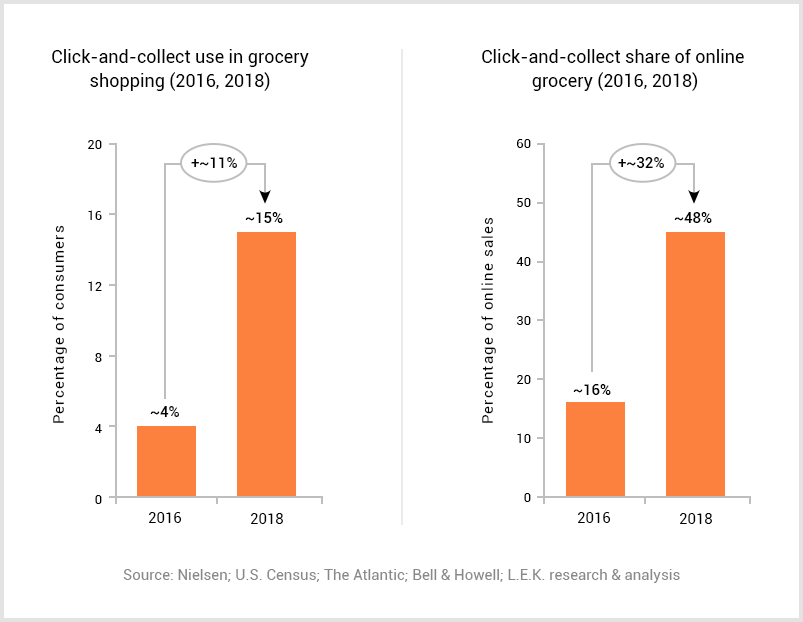
As the world prepares for a post-corona time, reimagining stores with BOPIS is the new normal for the grocery retail industry. Research from Order Dynamics suggests that almost 37% of all click and collect shoppers make additional purchases when picking items while super consumers buy even more 51% of the time.
From Amazon Fresh to Walmart, the online grocery marketplaces witnessed a sharp increase in grocery sales as all BOPIS orders grew by 82.8% between March 12 – 15 this year. As per Statista, the click and collect groceries sale is forecasted to reach 7.4% this year, an increase from a mere 2% in 2018.
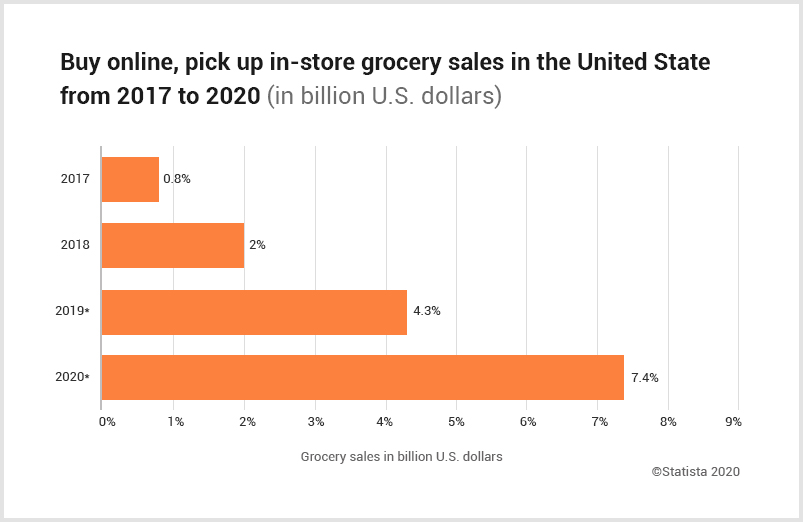
How does BOPIS work in the grocery retail industry?
As consumers look for flexibility and choice of orders in e-grocery shopping while making quick returns, BOPIS delivers such convenience to buyers. When visiting to pick up items in-store, buyers can see whether groceries are fresh or if they need to purchase additional items as well. Below, we’re sharing the complete working of BOPIS in 3 steps:
1. Order groceries through the website or mobile app
An online grocery marketplace with the BOPIS feature enables customers to select time and store locations simultaneously for picking up items while ordering through the website or mobile app. As platforms provide visibility for real-time local inventory, buyers can choose the nearest store to pick up groceries.
2. Order fulfillment
While ordering through click and collect, there can be two scenarios:
Scenario 1 – When the item is in-stock at the selected local store, the associate will find the item, pack it, and send a notification through the app communicating when it’s ready for pickup. This saves precious time for consumers and creates a positive impact.
Scenario 2 – When the grocery item is out-of-stock at the selected store, the associate will order it from the nearest store or warehouse. Post arrival, the store associate notifies the consumer when the items are ready for pickup.
3. Order pick-up
Consumers are aptly notified through text message, email, or push notification (by pickup grocery app) on where the pickup area is. Following instructions, buyers can pick up their groceries from the designated spot with ease. Moreover, several brands like Walmart and Target are facilitating curbside pickup with BOPIS so consumers can receive orders without leaving their car.
Retailer Benefits
Apart from improving consumer experience or increasing sales online, BOPIS offers numerous benefits to grocery retailers. Take a look at five benefits of operating click and collect shopping:
1. Additional purchase
Every time a consumer enters the store even if just to pick-up their ordered groceries, there’s an opportunity to sell more. A recent study published on Invesp in the US found that nearly 49% of all click-and-collect shoppers made additional purchases while 75% of them say they’re likely to purchase more. So, even if a customer has made a purchase, it does not mean he/she is done shopping.
2. Minimal returns
Returns are the biggest headache for e-retailers costing additionally for item processing, repackaging, and sending back to the distribution center while issuing a refund. Fortunately, click and collect orders can avoid such hassle. When a consumer visits the store for pick-up, he/she can check the groceries before taking them home. And, in case, some of the items are below expectations he/she is more likely to replace it rather than asking for a refund.
3. More online orders
Delivery charges are often a major issue for consumers grocery shopping online and at times, the only reason behind an abandoned cart. According to a survey, nearly 64% of internet users in the US opt for click-and-collect shopping to avoid paying for shipping or delivery fee.
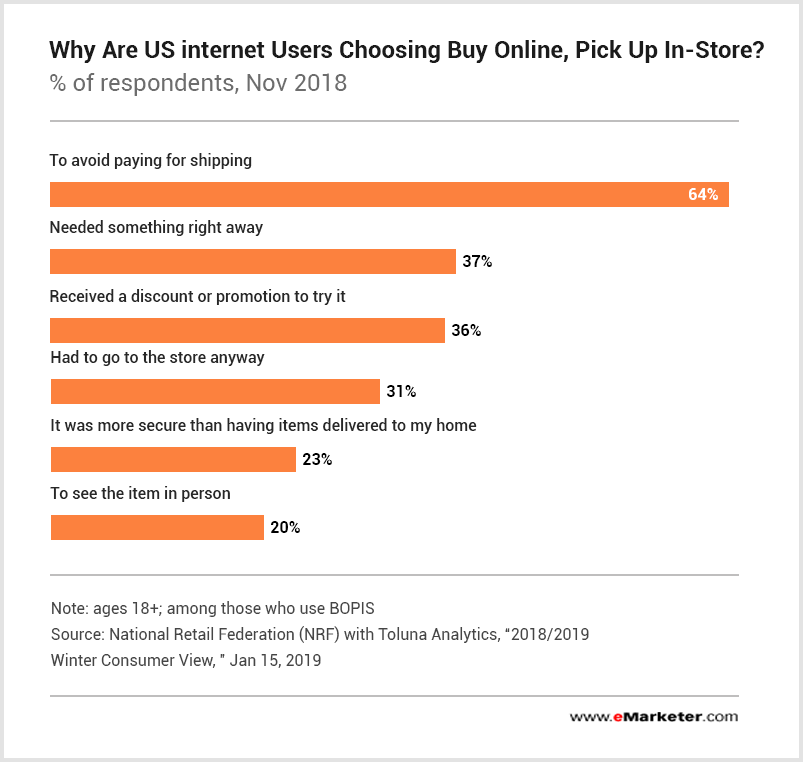
With BOPIS, consumers can pick-up their groceries directly from the store nearby eliminating delivery charges. This reduced delivery cost urges customers to select BOPIS as a preferred mode for ordering groceries online.
4. In-store incentives
Another benefit for retailers is the opportunity to market more products with loyalty or incentive programs. For instance, Brands like Best Buy or Target create a personalized shopping experience (with in-store wifi and more) for buyers as they arrive at the store to pick-up their ordered groceries. This improves the conversion rate and resulting sales, increasing the average transaction value of the initial purchase. With in-store touchpoint offers, retailers are likely to attract sales more often than not.
5. Less inventory storage required
While consumers order groceries using the BOPIS option, every listed item doesn’t necessarily have to be stored in-house. The store administrator can source these items from a nearby warehouse or store after receiving the consumer order. This reduces inventory overhead for grocery retailers.
Consumer Benefits
In a world of Amazon Prime, consumers are spoilt with free, fast delivery options. So, the only way for grocery retailers to retain consumers and compete with the retail giant is by offering BOPIS service. It helps in creating a personalized shopping experience for buyers with additional benefits, such as:
1. Comfort and convenience
As retailers introduce real-time updates with BOPIS service, it saves precious time for consumers since they’re notified when the purchase is ready for pick-up. Also, several grocery retailers have introduced curbside pickup to create a frictionless shopping experience that is equally comfortable and convenient.
2. Save on delivery charges
A survey by Statista showcases that nearly 51% of US consumers are not willing to pay for delivery while 29% will pay between $1-$5 for online grocery shopping. This is why BOPIS is gaining popularity. It saves customers to pay for extra delivery charges.
3. Greater selection to customers
Click and collect grocery retailers with multiple physical stores in a region can extend the inventory to each store offering a greater selection for customers. Hence, consumers can order their groceries at the nearest convenience store with ease.
Saves time – Groceries can be picked up at the store shelf (or through curbside pickup) within minutes after making a purchase with BOPIS. This saves consumers time as he/she doesn’t have to wait for the 2-hour delivery window to collect their groceries.
Challenges while implementing BOPIS
While BOPIS presents several opportunities to compete and grow as a business, there are often challenges for retailers while implementing click and collect service. Take a look at four challenges that grocers face:
1. Slow to adopt technology
While several retailers do not run an e-grocery store others operate on a platform that doesn’t offer the click-and-collect feature. These retailers lag behind because they’re reluctant/slow to adopt technology advancements like BOPIS. It involves several layers and requires careful planning/assessment for successful implementation. During a pandemic, as people follow social distancing, an e-grocery store with the BOPIS feature is essential for business survival.
2. Dedicated store administrator who understands customer needs
One of the biggest challenges a retailer faces is re-allocating resources or hiring dedicated personnel to help with BOPIS orders. Store administrators who understand consumer needs and offer timely packaging of items for pick-up enable click and collect grocery service to work well.
3. Marketing challenge
BOPIS is a valuable omnichannel concept and effective purchase option for grocery retailers and consumers. To ensure that more buyers use this service it is the responsibility of retailers to market this service effectively. If a grocer receives very few or no BOPIS orders, it is because he/she failed to create more awareness around the service.
4. Logistical challenge
Consider a situation when the store associate forgets to pack an ordered item or when the consumer wishes to change ordered items at pick-up or just before pickup. In such scenarios, without a sense of direction, the BOPIS service will not be successfully implemented as the retailer failed to readdress logistical issues.
Six-Step Solutions
To overcome these challenges and successfully implement BOPIS service into your grocery business, we present a six-step solution:
1. Frictionless shopping experience
From a pickup grocery app to an online grocery marketplace, the retailer has a presence on multiple channels. As consumers use different channels to order groceries, the shopping experience should remain consistent across all channels. Creating an omnichannel experience (whether through an intuitive user interface or multiple payment modes) is the first step towards implementing the BOPIS service. It builds trust with the customer and streamlines business operations.
2. Additional personnel to streamline the process
While consumers order through click and collect service, dedicated staff is essential to compile online orders and provide a convenient time frame for pick-up in store. This helps store associates better streamline the process without disrupting the daily operations as customers visit regularly to buy groceries in-store.
3. Trained staff and better store organization
Grocery stores must be better organized with more details so customers walking-in can easily find their items. Also, the staff should be trained properly to quickly find groceries in a large store, pack it, and send a timely notification to consumers when the pick-up is ready. This ensures a smooth click-and-collect service.
4. Multiple pick-up options
When offering click and collect service, the pick-up process for consumers should be simple and natural. There are three different pick-up options that the retailer can deploy:
In-store pickup – As customers visit the grocery store to pick-up their ordered groceries from the shelf, retailers have an opportunity to sell more with in-store offers. This option helps retailers understand consumers’ preferences and refine their approach.
Curbside pick-up – Adopted by several retail giants like Walmart and Target, curbside pick-up provides consumers the convenience to pick up groceries without leaving their cars.
Lockers – A unique pick-up option implemented by Home Depot, the lockers are installed at the front of all its stores to allow pick-up without any need of store associates. Investing in lockers may prove to be flexible for retailers and customers but special care must be given to perishable items to successfully implement BOPIS.
5. Active communication
From receiving a BOPIS order to grocery pick-up in-store, retailers must ensure active communication with the consumer is maintained at all times. Informing consumers when the groceries will be ready for pick-up or enabling them to specify their preferred freshness of perishable goods, is helpful for both customers as well as staff. Active communication helps staff minimize mistakes and meet customer requirements.
6. Promote BOPIS service
Let your customers know that you offer click-and-collect service with a robust marketing campaign. Maximize your reach by building awareness and offering incentives to customers. BOPIS is the future for online grocery shopping so make sure you invest in it.
Conclusion
For grocery retailers looking to stimulate both online and physical stores, click-and-collect feature presents a suitable opportunity to grow. By using the physical stores as fulfillment hubs, grocers can place items in consumers’ hands at a much faster rate. Moreover, as retail giants like Amazon or Walmart continue to dominate the e-grocery marketplace, retailers must successfully implement BOPIS to survive and compete.
If you’re running an e-grocery store, then integrating a click-and-collect model into your existing grocery shopping software will be beneficial. But, if you’re an aspiring entrepreneur, choose Growcer in-built with the BOPIS feature to launch your online grocery marketplace.
Ready to take advantage of Growcer’s in-built BOPIS feature?
